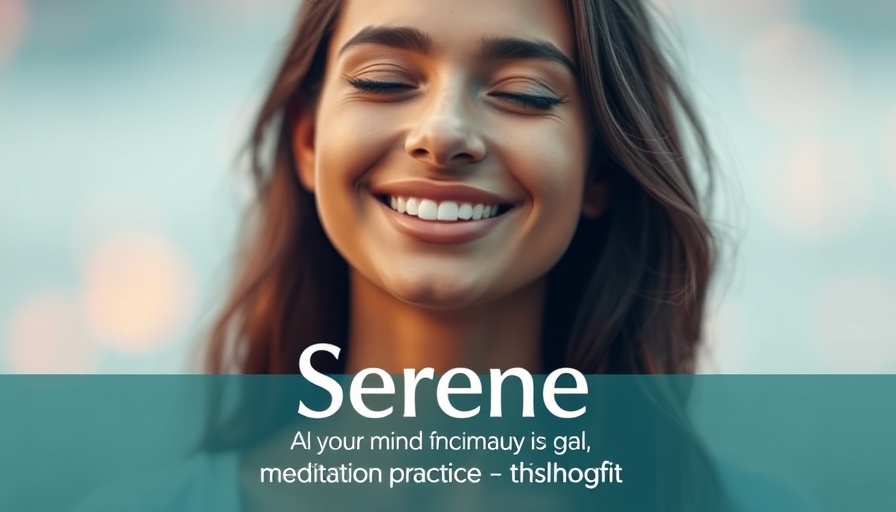
Rediscovering Yourself: The Need for Mindful Breaks
In our fast-paced world, where deadlines loom and responsibilities accumulate, finding a moment of peace can feel like an unattainable luxury. Yet, as mindfulness teacher Kimberly Brown aptly points out, sometimes taking just a pause can reconnect us with our true selves. When life feels overwhelming, a mindful break can offer the rejuvenation we desperately need.
The Benefits of Mindful Meditation
Mindfulness meditation isn't just about sitting quietly; it's a powerful tool that can provide immediate relief from stress. Research from various studies reveals that even brief moments of mindfulness can reduce anxiety, enhance emotional regulation, and promote overall well-being. It encourages professionals and busy families alike to step back, breathe, and recenter amidst chaos.
A Guided Meditation Practice
To help initiate this reconnection, Brown offers an accessible guided meditation. She encourages us to begin by turning inward, recognizing the presence of our thoughts and feelings without judgment. This practice invites you to promise yourself a few uninterrupted minutes—silencing devices and distractions—allowing the beauty of silence to envelop you. With your hands on your heart and belly, you can tend to yourself with the same care you would offer a dear friend.
The Power of Visualization in Meditation
As the meditation progresses, Brown introduces a thoughtful visualization exercise that involves imagining a loved one—be it a friend or a pet—whom you feel safe with. This not only fosters a sense of comfort but also encourages reinforcement of positive affirmations: “May we stay connected to our true selves.” Such phrases help solidify our commitment to ourselves, creating a gentle reminder to embrace steadiness and bravery through life’s ups and downs.
Incorporating Mindfulness into Your Daily Routine
Integrating mindfulness into daily routines doesn’t have to be complicated or time-consuming. A few minutes of meditation can be woven into morning rituals or lunch breaks, transforming mundane moments into opportunities for self-care. Finding time for mind-body activities such as yoga or breathing exercises can also amplify the benefits of mindfulness, supporting better mental health and overall wellness.
Challenges and Misconceptions About Meditation
Despite the growing evidence supporting mindfulness practices, some individuals still hesitate to embrace meditation, often believing they don’t have the time or that they won’t succeed. However, it’s crucial to recognize that there is no right or wrong way to meditate. Each person’s journey is unique, and what matters is finding what resonates best with oneself. Even short sessions can yield significant benefits, as they gradually train the mind to seek moments of stillness.
Finding Community in Mindfulness
Joining a community focused on mindfulness can also enhance the practice's effectiveness. Group meditations or workshops led by experienced teachers provide not only guidance but also opportunities for connection with others on similar journeys. Sharing experiences fosters accountability, motivation, and emotional support—all essential ingredients for cultivating a successful meditation practice.
Final Thoughts: Taking Action for Mental Health
Mindfulness isn't merely a trend but a vital aspect of maintaining mental health in our challenging era. As we cultivate moments of stillness, we empower ourselves to face life's demands with renewed clarity and resilience. So, the next time you're feeling overwhelmed, allow yourself the gift of a mindful break; it may just be the reset you need to keep moving forward.
By integrating these practices into your life, you will not only promote your own mental well-being but you’ll also encourage those around you to embrace these healthy habits as well. Give yourself permission to pause, breathe, and be present; your mind and body will thank you for it.
 Add Row
Add Row  Add
Add 




 Add Row
Add Row  Add
Add 

Write A Comment